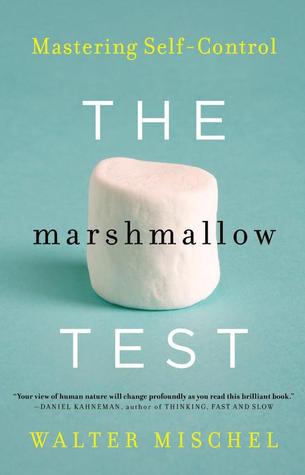More on this book
Community
Kindle Notes & Highlights
Read between
February 11 - June 11, 2018
the ability to delay immediate gratification for the sake of future consequences is an acquirable cognitive skill.
Self-control is crucial for the successful pursuit of long-term goals. It is equally essential for developing the self-restraint and empathy needed to build caring and mutually supportive relationships. It can help people avoid becoming entrapped early in life, dropping out of school, becoming impervious to consequences, or getting stuck in jobs they hate. It is the “master aptitude” underlying emotional intelligence, essential for constructing a fulfilling life.
Successful delayers created all sorts of ways to distract themselves and to cool the conflict and stress they were experiencing.
In short, we are less likely to delay gratification when we feel sad or bad. Compared with happier people, those who are chronically prone to negative emotions and depression also tend to prefer immediate but less desirable rewards over delayed, more valued rewards.
The power is not in the stimulus, however, but in how it is mentally appraised: if you change how you think about it, its impact on what you feel and do changes.
The marshmallow experiments convinced me that if people can change how they mentally represent a stimulus, they can exert self-control and escape from being victims of the hot stimuli that have come to control their behavior.
The power resides in the prefrontal cortex, which, if activated, allows almost endless ways of cooling hot, tempting stimuli by changing how they are appraised.
When dealing with temptations, one way to momentarily escape the hot system is to imagine how someone else would behave.
Prolonged stress impairs the PFC, which is essential not only for waiting for marshmallows but also for things like surviving high school, holding down a job, pursuing an advanced degree, navigating office politics, avoiding depression, preserving relationships, and refraining from decisions that seem intuitively right but on closer examination are really stupid.
The message here is that parents who overcontrol their toddlers risk undermining the development of their children’s self-control skills, while those who support and encourage autonomy in problem-solving efforts are likely to maximize their children’s chances of coming home from preschool eager to tell them how they got their two marshmallows.
While self-control ability is an essential ingredient for constructing a good life, it does not function in isolation: the engine of success is fueled by additional resources that protect against the negative effects of stress and provide a foundation that can be cultivated and nurtured.
EF allows planning, problem solving, and mental flexibility, and it is essential for verbal reasoning and school success.
If EF is severely impaired, our prospects are limited. Without EF, it becomes impossible to control emotions appropriately and inhibit interfering impulsive responses.
Those who felt closely connected to the future self thought more about the delayed long-term consequences of their actions, and it was this attention to future consequences that accounted for their unwillingness to make greedy, selfish decisions.


